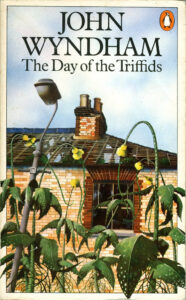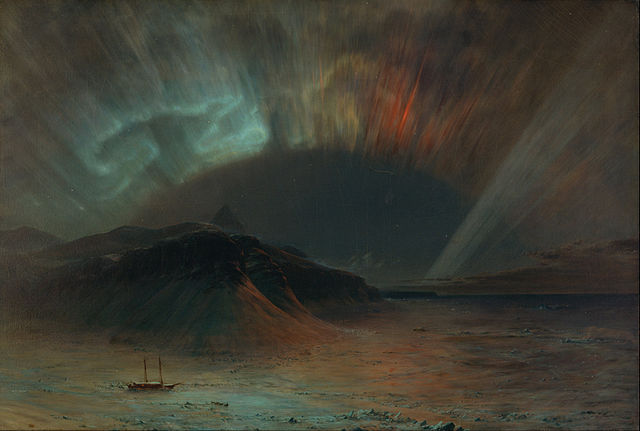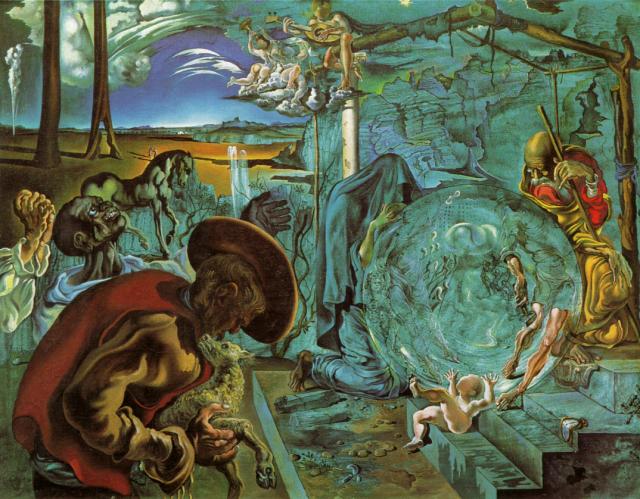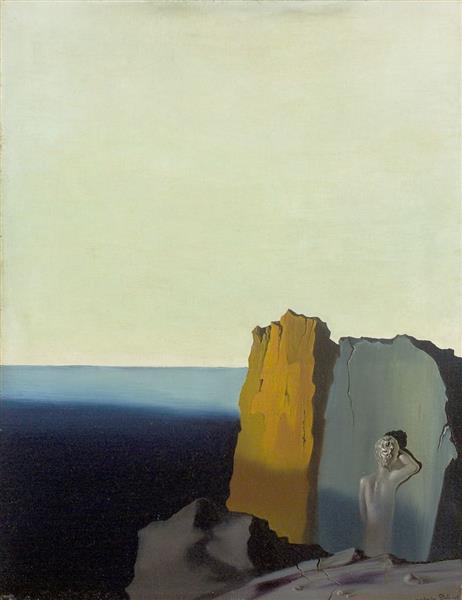 “When a day that you happen to know is Wednesday starts off by sounding like Sunday, there is something seriously wrong somewhere.”
“When a day that you happen to know is Wednesday starts off by sounding like Sunday, there is something seriously wrong somewhere.”
It seems like eons ago that I read a book by John Wyndham …… The Chrysalids, I believe it was …. and I should have remembered that it was weird. Just like The Day of the Triffids. Meat-eating plants with poison stingers and an odd way of transportation, not to mention a world-wide calamity that leaves most of the population blind. What could be stranger?
While his father rather despaired of his ability to find a respectable career, Bill Masen proves his worth by making a decent living working with Triffids, a plant that mysteriously began to sprout up all over the world and was found to contain a highly lucrative oil. Yet this plant is not an ordinary plant in that it is a carnivorous species with a deadly stinger and if one is slapped with it, it death often follows. Even more peculiar, the plant can move by balancing on three wooden stems and shuffling its stalk forward. Ugh! However, Bill enjoys his job and continues it in varying capacities until a comet circles the earth with a flash of light. The result? Most people on earth have been struck blind and Bill only escapes due to a hospitalization from a Triffid attack where his eyes were bandaged tightly.
Confused and wondering at the silence of the building and outside, he removes his bandages and leaves, only to find a world completely altered. People are stumbling around in their blindness, rudderless and helpless and sometimes angry. Rescuing a sighted girl, Josella, from a vicious captor, the two of them set out to find supplies and regulate themselves to their new reality and also the threat of the now loosely roaming and hostile Triffids.
With the comet’s catastrophic effect, people conglomerate into groups to survive, forming types of loose government. Throughout the novel, Bill and Josella find themselves part of different groups, and the reader experiences various governing philosophies. One group of sighted people decide that they must limit their population to mostly sighted people with only a few blind souls who had been blind before the comet hit and therefore were already accustomed to living in darkness. Practically, their main object is to perpetuate the race and therefore, each man will be able have numerous wives. A number of people, shocked at the deviation from tradition values, breaks off and forms their own group but living in a new world with traditional values might prove more challenging than they expect.
At the end, a separate totalitarian group discovers Bill and Josella, now living with others on a farm, and decides to assimilate them, claiming superior knowledge and an exemplified ordered society with despotic rules for the good of everyone (hhmmm, sounds like our government). Only those rules are made by humans and increased power often breed corruption, decreasing compassion and humanity and severely limiting freedoms. Thus Bill and Josella escape from this rather alarming neo-Marxist group.
Wyndham does an excellent job of setting the stage for his story, his descriptions although sometimes sparse, are still very effective, reminding me very much of H.G. Wells. However, the sewing together of his novel, while tight in places, showed some unravelled seams in others. There are many opportunities for philosophical discussion, as a worldwide catastrophe screams for some introspective examination. Wyndham does seem to start down that path when Bill notes:
“…. it was the simplicity that seemed somehow to be the nucleus of the shock. From very familiarity one forgets all the forces which keep the balance, and thinks of security as normal. It is not. I don’t think it had ever before occurred to me that man’s supremacy is not primarily due to his brain, as most of the books would have one think. It is due to the brain’s capacity to make use of the information conveyed to it by a narrow band of visible light rays. His civilization, all that he had achieved or might achieve, hung upon his ability to perceive that range of vibrations from red to violet. Without that, he was lost. I saw for a moment the true tenuousness of his hold on his power, the miracles that he had wrought with such a fragile instrument ….”
However, while there are a few other scientific insights thrown out, there was really no cohesive examination of the deeper human condition in a way that would allow the characters to face their new reality well and therefore grow and prosper. Most people either seemed to be taking advantage of others or simply muddling through with little inner compass. I was particularly bothered when Josella speculates that it might have been man’s scientific endeavours that caused both the comet calamity and the problems with the Triffids, and her attitude is “oh well, no one is to blame especially because the Triffids brought man so much money and who could have predicted their breakout and the peril they are now causing?” Yet it is precisely because science is experimental and has the potential for both harm and good that the scientist (and government) has an overwhelming responsibility to use the utmost discernment and greatest caution with any venture that has the possibility of danger or destruction. I’m reminded of Frankenstein and his abandonment of his creation/monster. The resulting consequences from his decision caused unimaginable harm.
Perhaps I’m being unfair and Wyndham adequately portrayed people in their immediacy and therefore myopic outlook, but I can’t shake the feeling that by glossing over the deeper questions, he missed an opportunity to make his story more interesting and meaningful, and in fact, more universal. Perhaps if he had journeyed from the “what was” to the “what could be,” he could have coloured his story with a more favourable outlook for the human race. We are more than a scientific formula, and strive for happiness and goodness in spite of the fact it seems that we never adequately reach our goals. But it’s the striving after these loftier aspirations that Wyndham misses exploring and without this depth, while entertaining, his novel ultimately flounders in the shallows.






I read this over 40 years ago so can’t remember much of the detail – plus what little I can remember is probably overwritten by the movie/TV adaptations. Of course Wyndham wrote a lot of end of the world stuff (there was a LOT of it around then post-atom bomb) and I don’t think many of them ended well for humanity. But if the past is anything to go by the human race would end with the last two people fighting over a can of tuna fish.
I read The Chyrsalids but can’t remember much about it. I like Wyndham if I don’t expect too much from him. So far I haven’t found there’s alot of depth to his stories, however they are entertaining.
I think your supposition is reasonably accurate, however I sometimes wonder if the thing fought over will even be as sensible as that. Sad ……
Good to see you around!
Well, we ARE Creatures that will fight each other over just about anything – given the opportunity. If we can’t find anything we’ll just make something up. It’s probably a toxic combination of our lizard and ape brains.
Oh, I’m around. I’m always around – two posts a day on my Blog generally… sometimes more… [grin]
Yes, I thought this was a marvelous premise, but a little disappointed at the end. It almost seemed as if Wyndham got tired of his own story and just wrapped it rather quickly. Still, it was captivating.
What a great observation, Joseph! That’s definitely how I felt. Almost as if he had something to say but no real plan and the story meandered around until it just fizzled out.
I much preferred the movie to the book. After reading this I swore off Wyndham and am now living a happier, more productive and satisfying life 😀
You know, I might just follow your lead. I read The Chrysalids at one point and can’t really remember anything about it. There are probably better uses for my time.
Of course, I started reading russian classics after that, so the misery kind of all balanced out 😀
I quite agree. I would even go further. For me personally, there was no character or themes’ insight. He describes the setting, but it is almost as though the author himself is not interested in the deep issues of the dystopian scenario he tries to present. It was all very bland and, despite all the hopes, even forgettable.
Yes, exactly. You’ve explained it beautifully. Have you read any other Wyndham novels? Are they all similar?
I read The Midwich Cuckoos and I won’t say that there was a lot of insight or deep issue analysis, but I definitely liked it more.